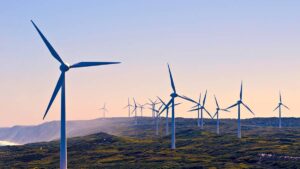Power Up: Is oil on a precipice?

OIl's on the edge. Pic: via Getty Images.
As the world lurches headlong into greater levels of geopolitical tensions, it will almost certainly impact on energy security and prices. Just how much depends a large part on how OPEC and its associates react.
Thus far, the oil cartel has chosen not to officially comment on the events occurring in Israel and apparently has no plans to hold an extraordinary meeting or take any immediate action.
Crude oil prices have hovered around the US$90 per barrel mark with the latest rise underpinned by a drop in US inventories, and as highlighted by Tim Boreham, are still 8% below the levels of two weeks ago.
Should OPEC maintain its current production cuts, the impact on oil prices is likely to be limited.
However, should the conflict between Israel and Hamas spiral out of control, we could well see action from the Organization of Arab Petroleum Exporting Countries (OAPEC), which while sharing many members with OPEC, should not be confused with the broader cartel.
The last time OAPEC took action in October 1973 as the Yom Kippur War raged on, the oil embargo targeted at nations that supported Israel sent prices soaring nearly 300% from US$3 per barrel to nearly US$12 per barrel.
Of course a lot has changed since then – like the US now being a net explorer of oil – so a new embargo will be somewhat more limited in its impact, though it would still be painful.
Odds are though that cooler heads will prevail and such a move will not come to pass.
However, a widening of hostilities would more than likely lead to panic buying, which would in turn drive energy prices up, which works out to something similar on a smaller scale.
Energy security driving energy storage adoption
The need to secure energy security, which to be entirely fair has been true for some time now, could well drive greater adoption of both renewables and energy storage.
It is certainly does help to account for why Tesla’s battery storage division, which covers both household and utility scale products, has recorded its highest quarterly deployment and become the company’s highest margin business.
The division deployed 4 gigawatt hours of battery storage during the third quarter of 2023, up 10% from the previous quarter and a whopping 90% from the previous corresponding quarter.
It certainly places it on track to match the company’s automotive business, an outcome that was foreseen by its maverick chief executive Elon Musk in the past.
Investment is also continuing to flow into renewables with Aware Super, one of Australia’s largest superannuation funds, flagging that it would invest up to $2bn into small-scale solar and battery projects.
While funds typically invest in utility scale projects, these have faced ongoing delays.
Smaller-scale projects also have the advantage of being spread out, which could play a role in both increasing adoption and ensuring that renewables are able to provide greater coverage throughout the day.
Related Topics

UNLOCK INSIGHTS
Discover the untold stories of emerging ASX stocks.
Daily news and expert analysis, it's free to subscribe.
By proceeding, you confirm you understand that we handle personal information in accordance with our Privacy Policy.








